
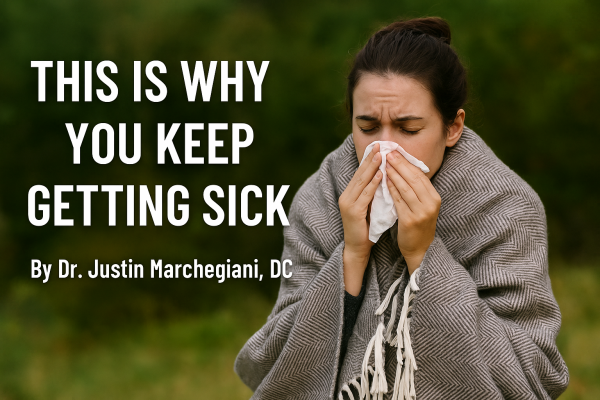
By Dr. Justin Marchegiani, DC
Do you catch every cold going around, even when others don't? If you feel constantly sick—sinus infections, viral bugs, or sore throats—it’s time to dig deeper. Frequent illness is often a sign of a weakened immune system, and functional medicine can help identify and correct the underlying imbalances.
In this article, we’ll explore:
How your immune system actually works
The Th1 vs. Th2 defense mechanism
The top 11 natural strategies to stop getting sick
Functional medicine lab tests that can reveal hidden immune stressors
Let’s strengthen your immune army—naturally.
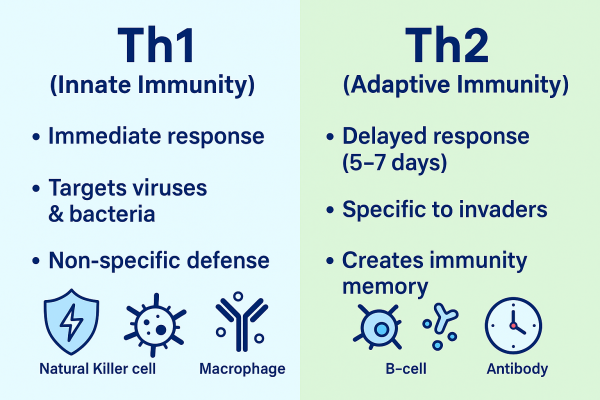
Imagine your immune system as a strategic military operation:
Repeated illnesses typically indicate an underperforming Th1 immune response. Balancing both Th1 and Th2 arms is essential for robust health.
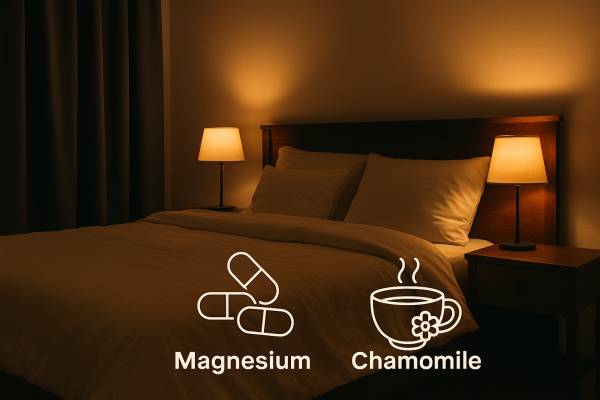
Sleep isn’t just rest—it's immune-system fuel—human growth hormone, crucial for immune health, peaks around 10 PM.
Action Step: Aim for 7.5–9 hours nightly. Create a calming bedtime routine, eliminate screens, and consider natural supplements like magnesium glycinate or chamomile tea.

Vitamin D supports your Th1 response. Insufficient levels are linked to frequent infections and autoimmune diseases.
Action Step: Spend 15–30 minutes daily in direct midday sunlight or supplement with vitamin D3 (2,000–5,000 IU/day). Regularly test vitamin D (optimal range: 50–80 ng/mL).
Sugar dramatically weakens neutrophil activity, making it easier for infections to take hold.
Action Step: Remove processed sugars, refined carbs, and alcohol. Instead, focus on proteins, healthy fats, and vegetables. Include nutrient-rich bone broth to fortify immunity.
Early symptoms like fatigue, a scratchy throat, or a low mood signal immune activation.
Action Step: Immediately prioritize rest, decrease stress, and scale back strenuous activities.
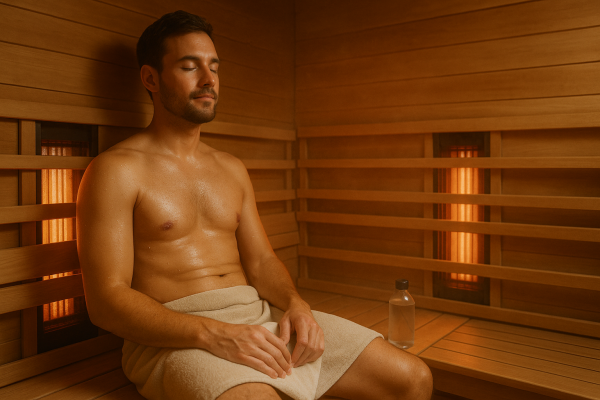
Saunas simulate fever conditions, enhancing white blood cell activity and detoxification.
Action Step: Use infrared or traditional saunas 2–4 times weekly. Remember to hydrate and rest afterward.
Water is vital for lymphatic drainage and toxin removal.
Action Step: Drink half your body weight in ounces daily. Herbal teas such as ginger or echinacea also enhance immunity.
Chronic stress raises cortisol levels, impairing immunity. Even brief stress can suppress immune function for up to two days.
Action Step: Engage in mindfulness practices like meditation, journaling, or breathwork to lower stress levels.
Most infections spread via contaminated hands.
Action Step: Wash hands regularly for 20 seconds using warm water and natural soap, especially after public outings.
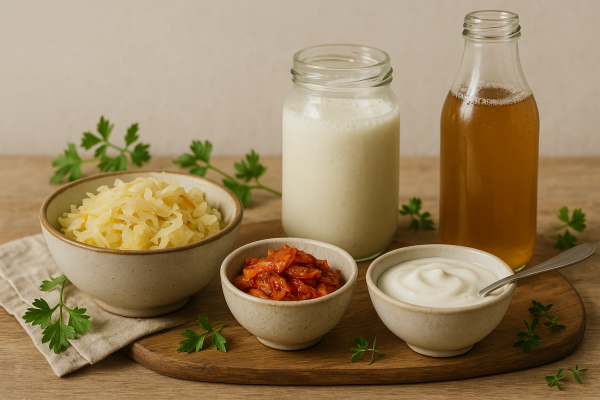
70% of your immune system resides in your gut (MALT & GALT). Fermented foods promote beneficial gut bacteria.
Action Step: Include foods like sauerkraut, kimchi, or kefir daily. Consider probiotics, especially after antibiotics.
Short-term fasting enhances immune cell function and blood sugar stability, which are crucial for immunity.
Action Step: Incorporate a 12–16-hour fasting window daily, including bone broth and herbal teas as needed.
Protein fuels antibody production and immune-cell regeneration.
Action Step: Aim for 0.7–1 gram per pound of body weight daily through quality sources like grass-fed meats, wild fish, eggs, or plant-based proteins.
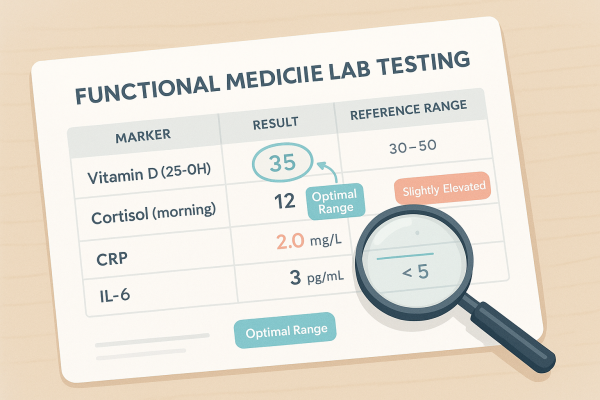
If you consistently practice good health habits yet frequently get sick, deeper issues may be at play. Functional medicine testing can uncover hidden immune barriers:
Antibiotics address bacterial infections, but don't build your immune system. Overuse damages gut flora, leading to increased susceptibility.
A functional medicine approach focuses on naturally restoring immune resilience through diet, lifestyle adjustments, and targeted supplementation.
If frequent illness keeps you sidelined, it’s time for personalized support. Let's identify and address your immune health challenges together.
👉 Schedule your FREE consult with Dr. Justin today!
Strengthen your immune system naturally—starting now.
References:
Godbout JP, Glaser R. Stress-Induced Immune Dysregulation: Implications for Wound Healing, Infectious Disease and Cancer. PubMed
Sanchez A, et al. Role of sugars in human neutrophilic phagocytosis. Am J Clin Nutr. 1973;26:1180.
Bernstein J, et al. Depression of lymphocyte transformation following oral glucose ingestion. Am J Clin Nutr. 1977;30:613.
====================
Recommended Products
====================
IN CASE YOU MISSED IT:
Understanding the Link Between High Insulin Levels and Acne: A Functional Medicine Approach
Why are people in the USA so sick, and what to do about it with Rob Edwards| Podcast #440